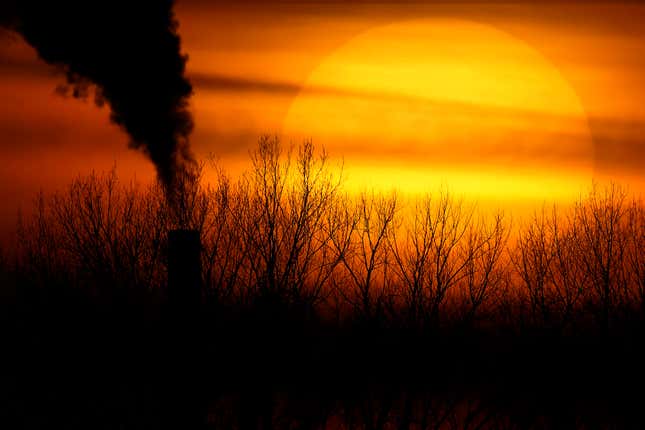
The more I learn about how horrific the nooks and crannies of this country are, the less I understand how anyone can proudly declare we’re the best in the world. If this country is best at anything, it’s managing to embed racism in just about every facet of American life, including the goddamn environment. A report from human rights officials in the United Nations has called for an end to the environmental racism of Louisiana’s “Cancer Alley.”
Huffpost reports that the 85-mile stretch of land along the Mississippi river was once the site of numerous plantations. Today, it’s home to a mostly Black population who live in the shadow of almost 150 plastics plants, oil refineries, and chemical plants. It’s estimated that the air pollution is so bad in the area that residents are 95 percent more at risk of being stricken with cancer than any other place in America.
“This form of environmental racism poses serious and disproportionate threats to the enjoyment of several human rights of its largely African American residents, including the right to equality and non-discrimination, the right to life, the right to health, right to an adequate standard of living and cultural rights,” the U.N. experts said in the report.
Fun fact about the U.N’s human rights officials: these are the folks sent in to investigate the killing and imprisoning of protesters in Myanmar, and allegations of torture in Afghanistan. That should give some context to the severity of the environment racism the predominantly Black population in this area have experienced.
Studies have shown that the residents in the industrial corridor have suffered and died from cancer, diabetes, and respiratory diseases at a higher level than most areas of the country. Given how the environment is more or less giving people pre-existing conditions left and right, it should come as no surprise that COVID-19 decimated the area. During the early months of the pandemic, St. John the Baptist Parish, one of the areas along Cancer Alley, had the highest death rate per capita in the country.
From Huffpost:
Until the U.S. Army Corps of Engineers suspended permits in November, Taiwanese industrial giant Formosa Plastics Corp. was building what would have been one of the world’s largest plastic manufacturing plants in the region. The project, approved in 2018, would have more than doubled the cancer risks in St. James Parish, where census data show roughly half the population is Black and nearly 17% falls below the poverty line.
But using data from the Environmental Protection Agency, the U.N. researchers found that the cancer risks for the predominantly Black parts of the parish were up to 105 cases per million residents, while areas where the population was mostly white ranged from 60 cases to 75 cases per million.
As more petrochemical plants open, the U.N. report estimated that the combined carbon dioxide emissions per year in a single parish would exceed those of 113 countries.
Instead of working to solve this issue, and improve living conditions for those in the area, Louisiana lawmakers opted to introduce legislation that would harshly punish protesters convicted of trespassing on industrial property or infrastructure. Should the bill have passed, it would have required judges to impose a mandatory three-year sentence with hard labor.
Essentially, Louisiana lawmakers said “Shut up, or we’ll send your ass back to slavery.”
Thankfully, Louisiana Governor John Bel Edwards (D) vetoed the bill, but it just goes to show how fucked the priorities are of those whose entire job is supposed to be solving these kinds of problems. Hopefully, this U.N. report will spur legislators in Louisiana to actually do their job, instead of trying to punish folks for simply having the audacity to not want to die.

